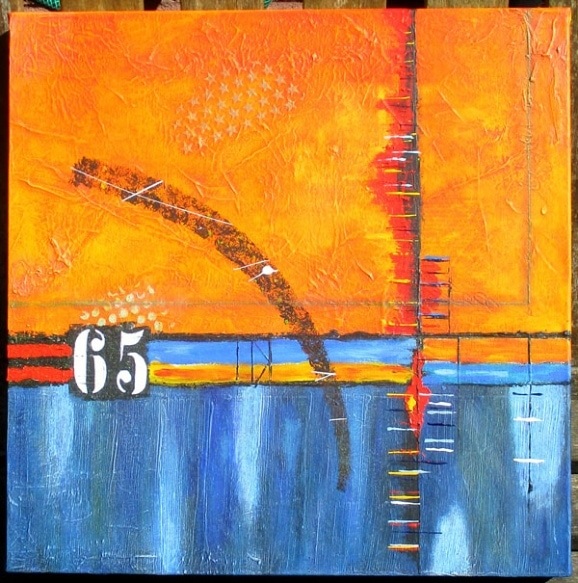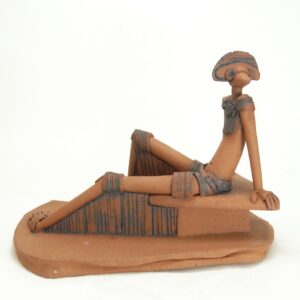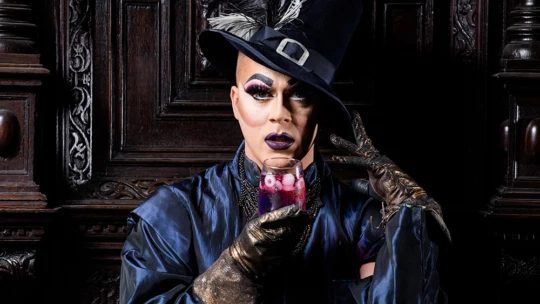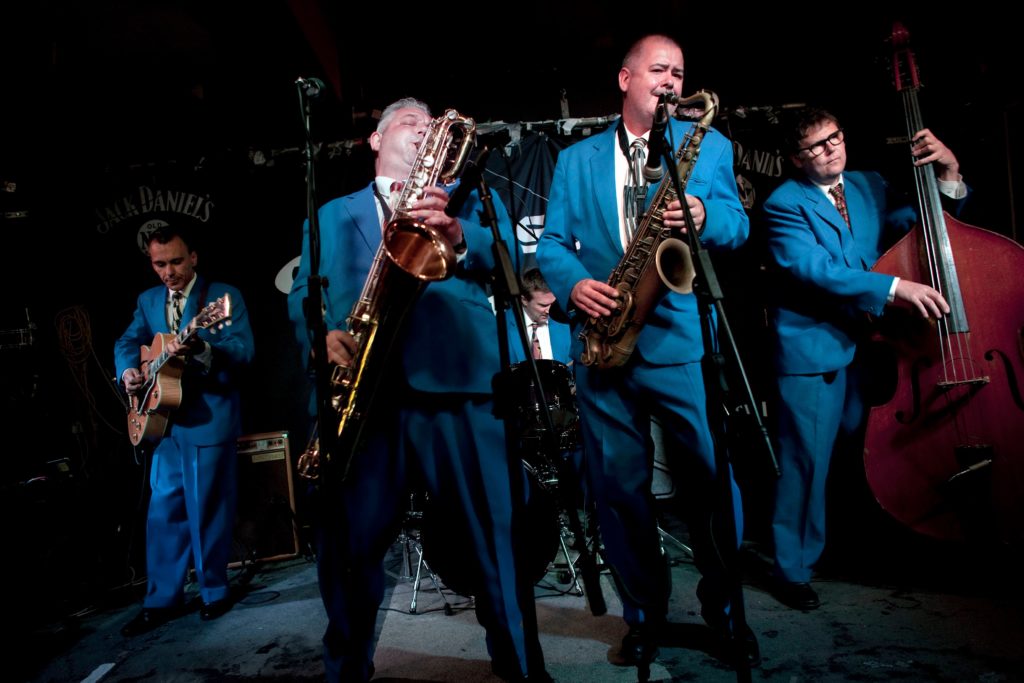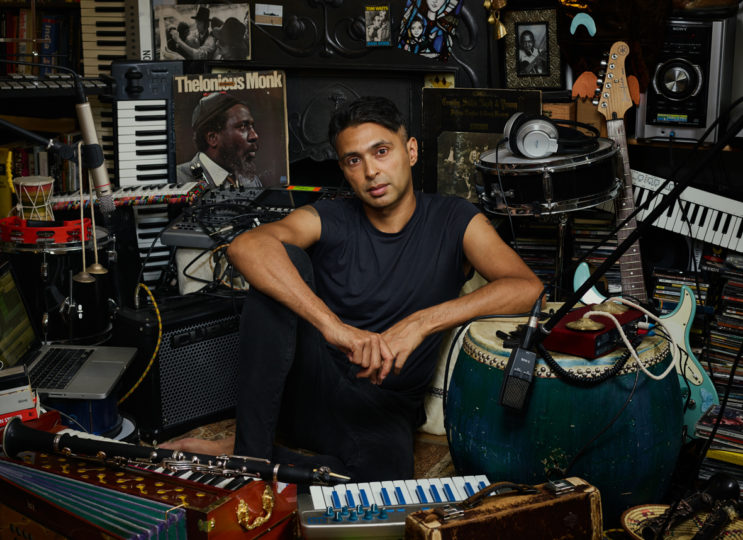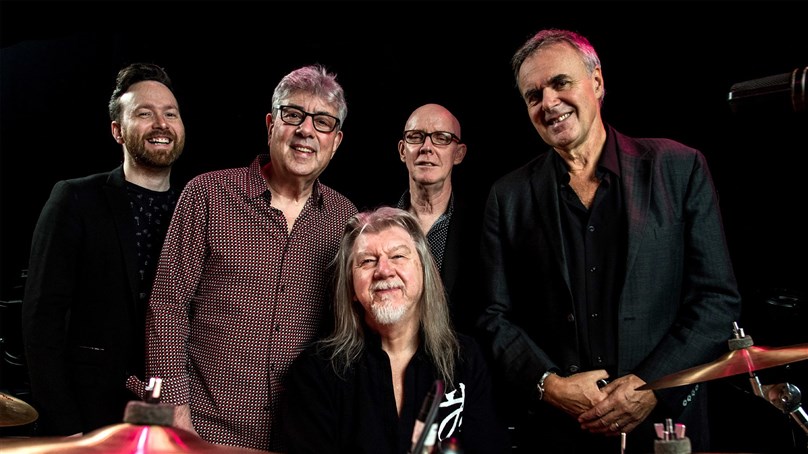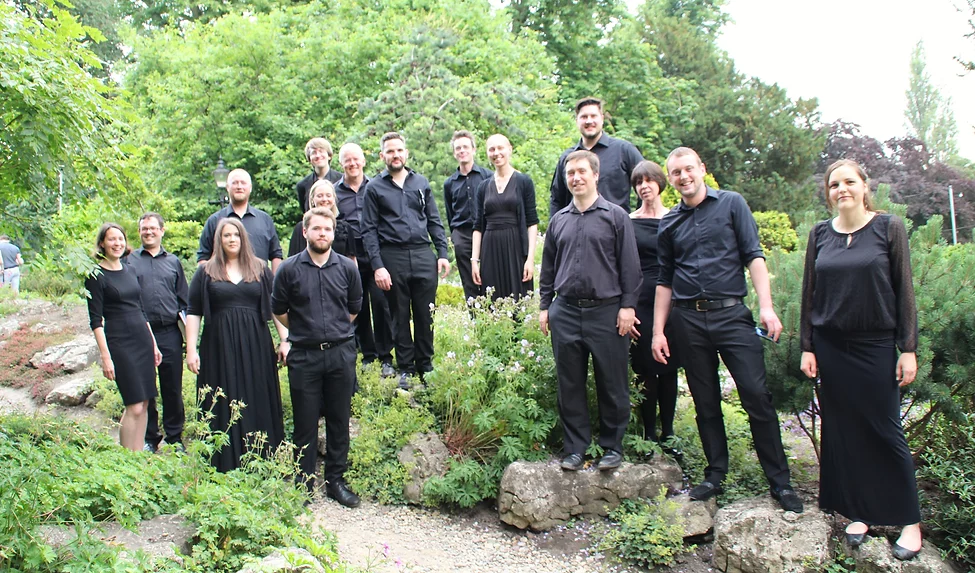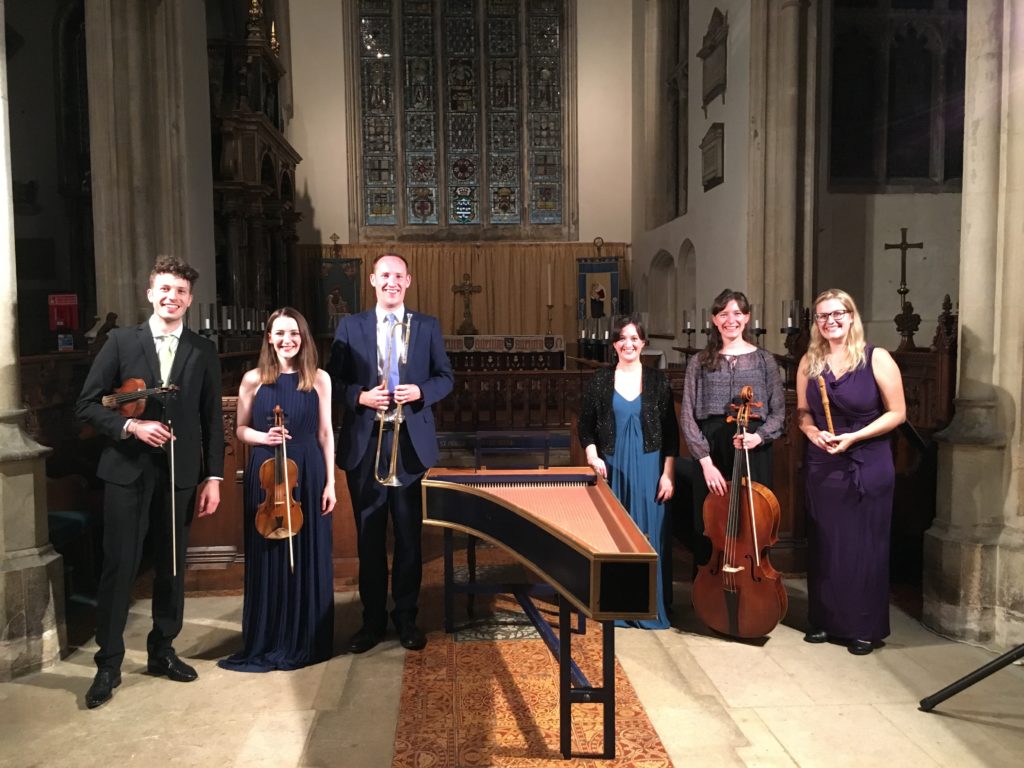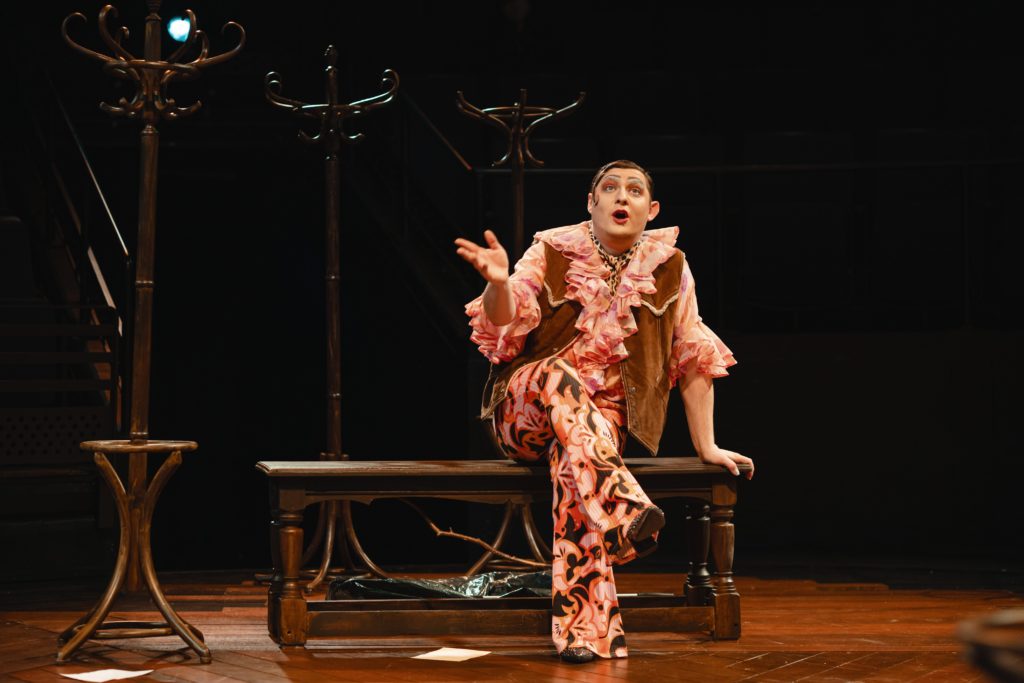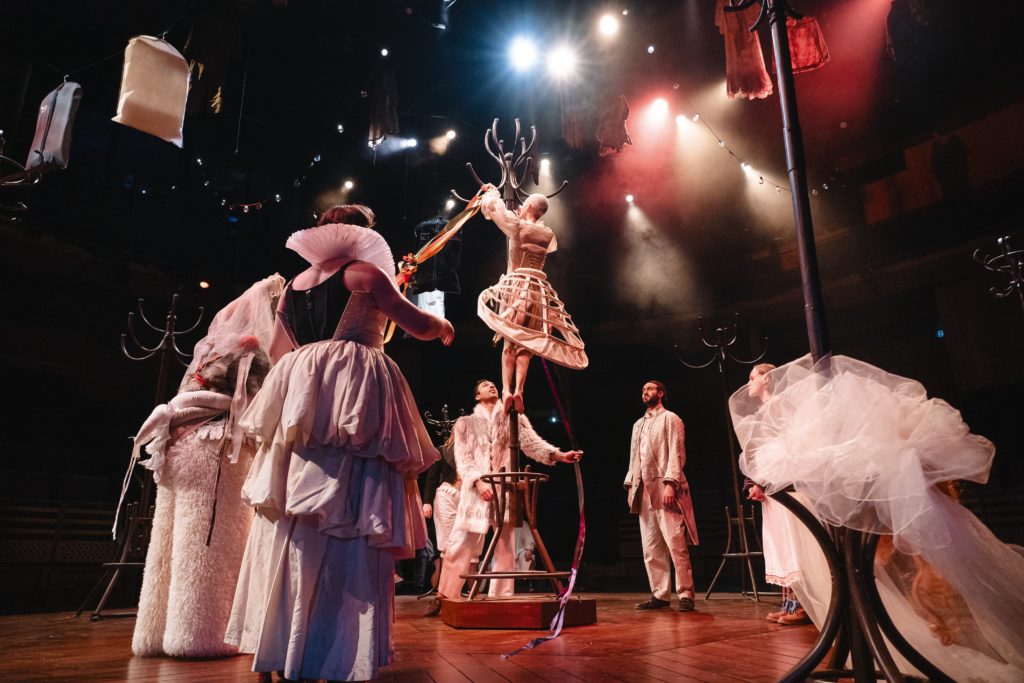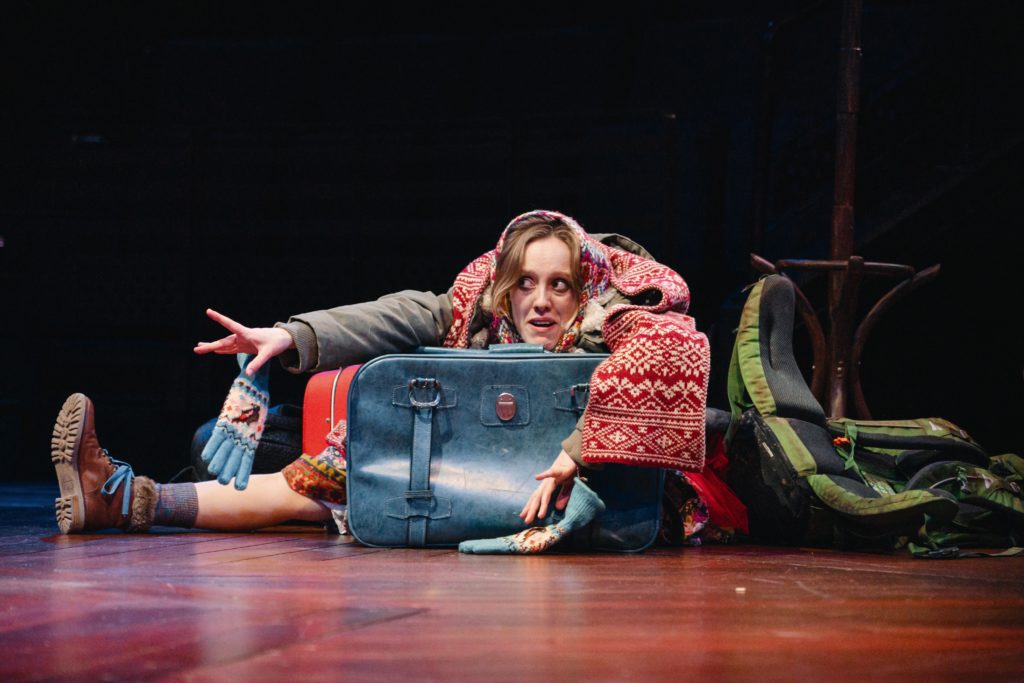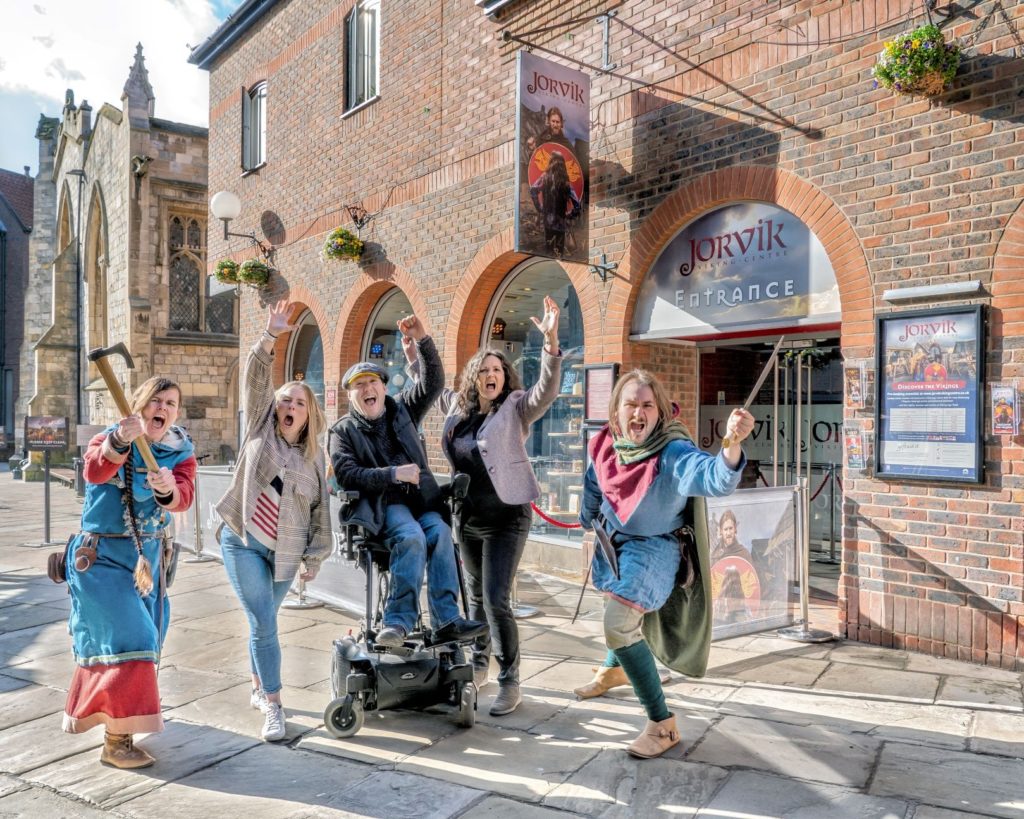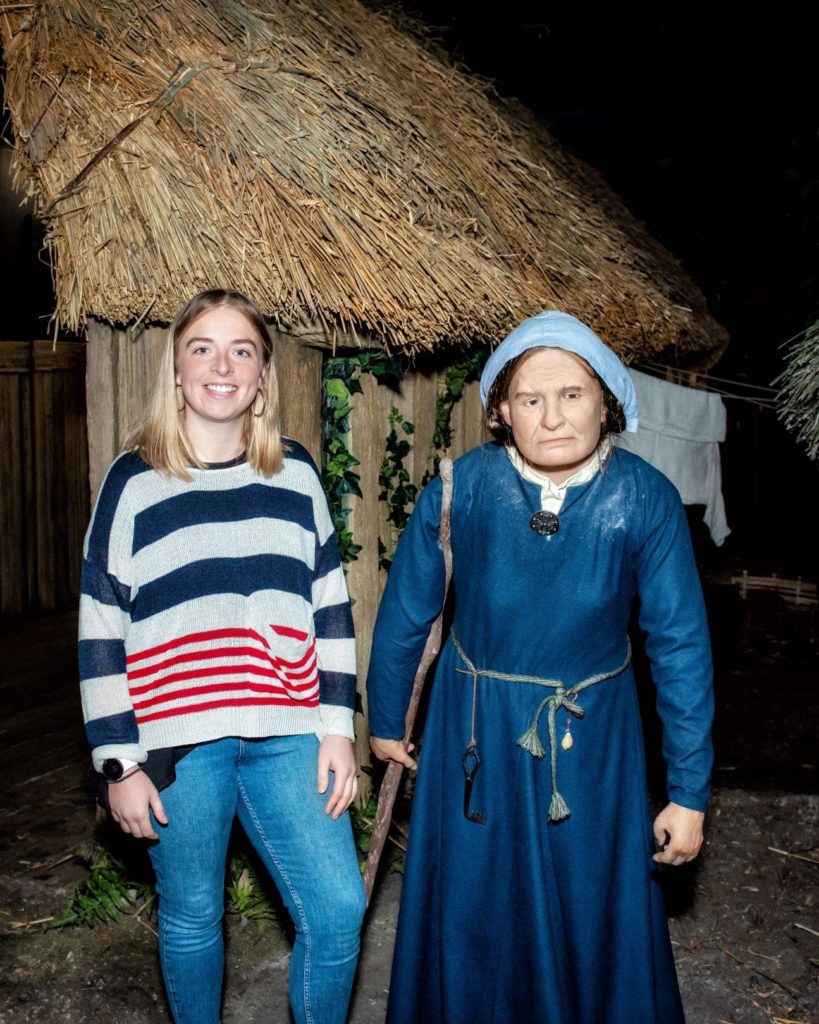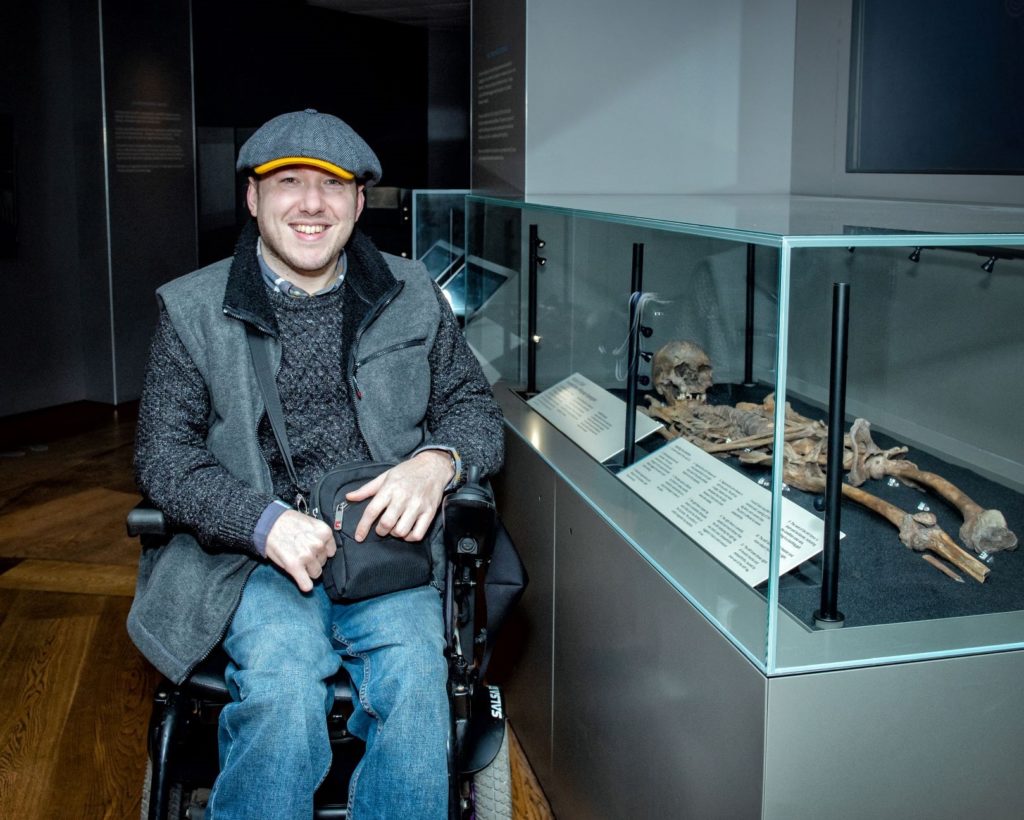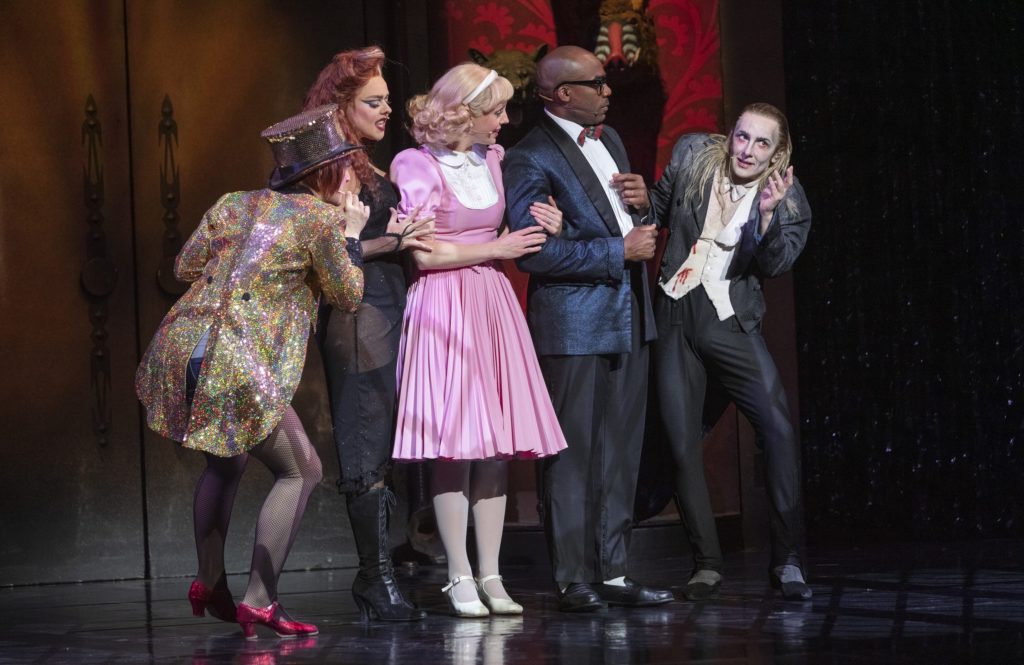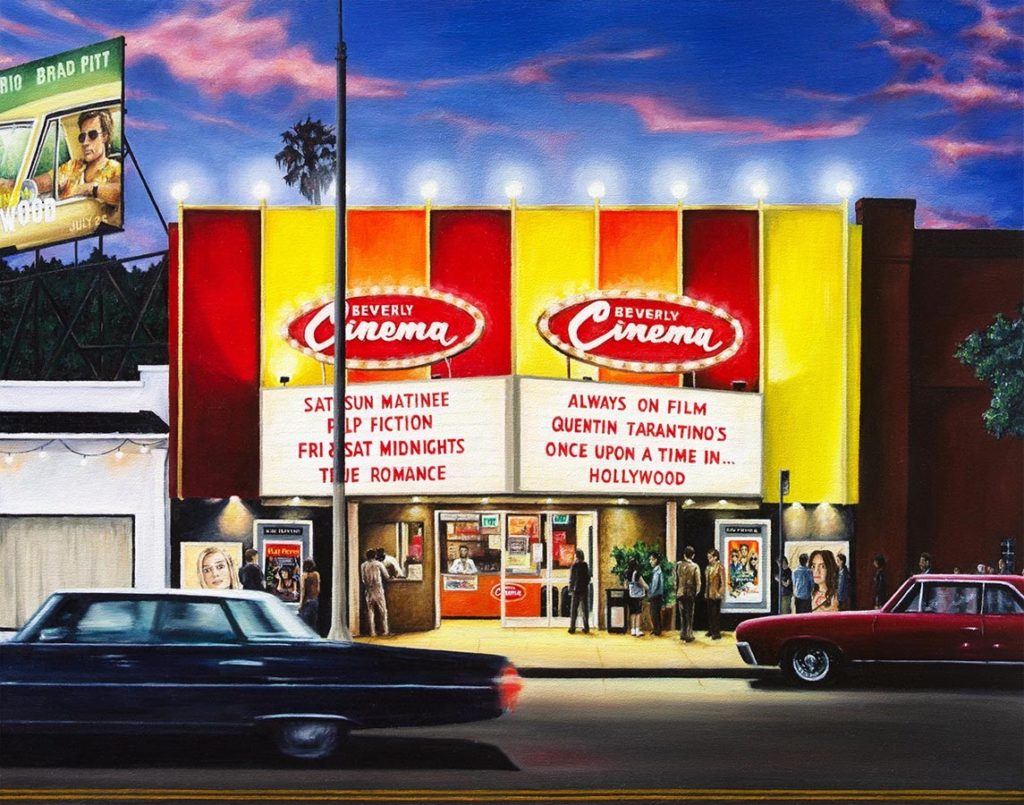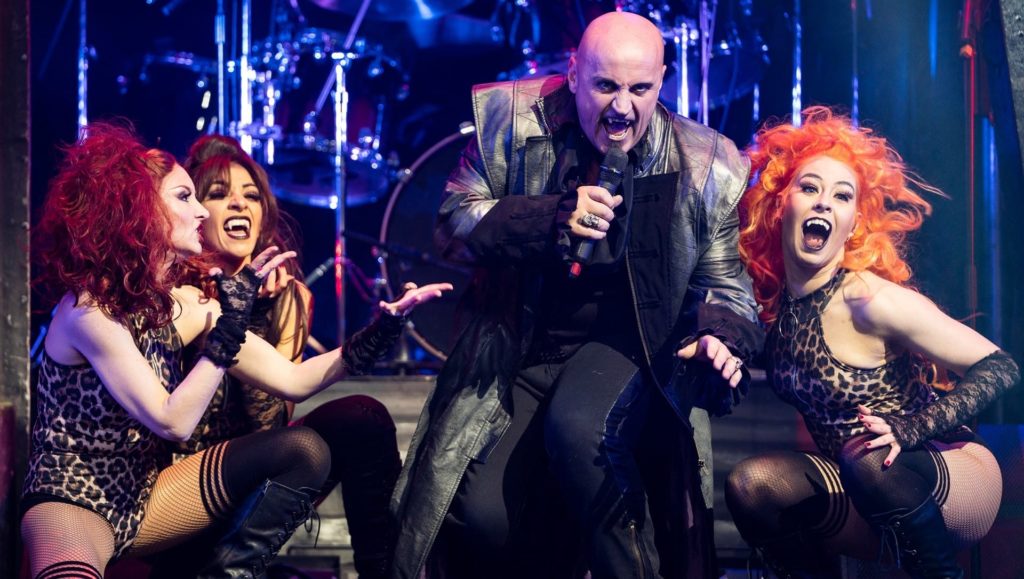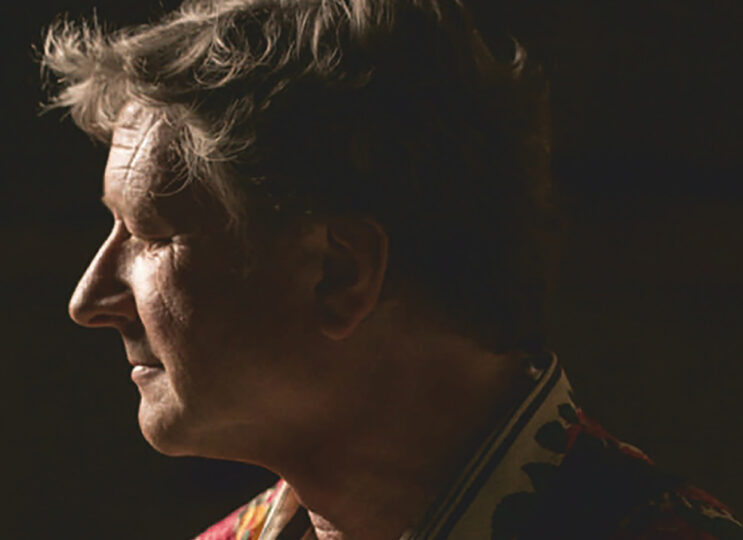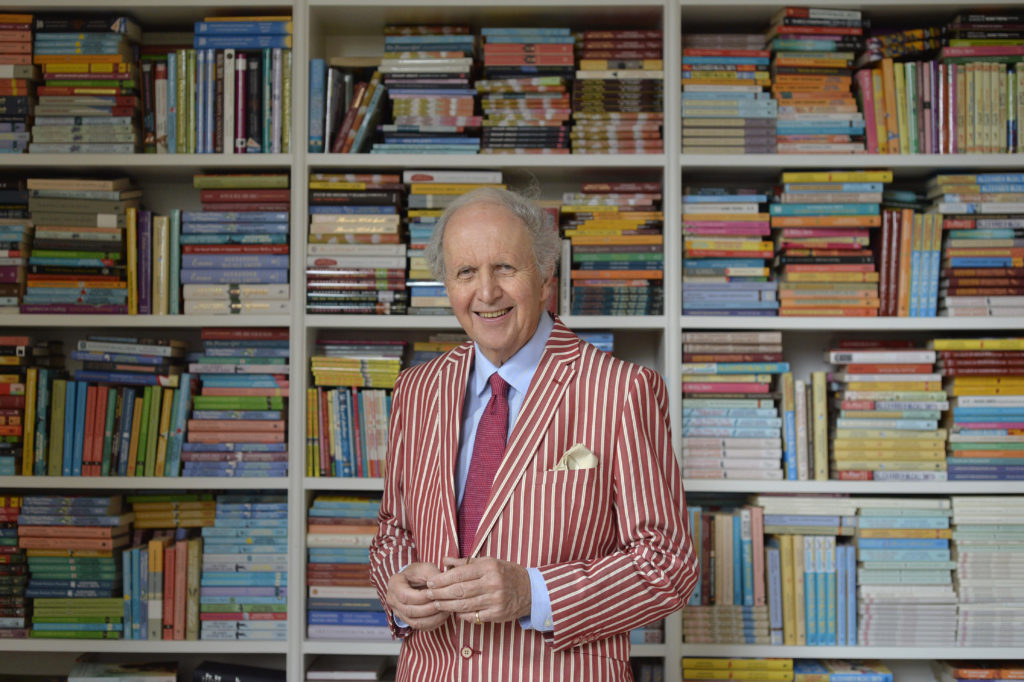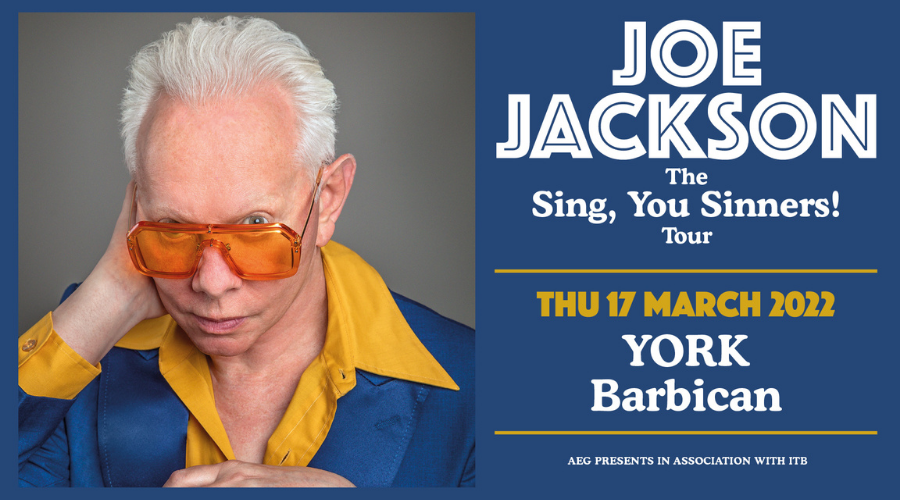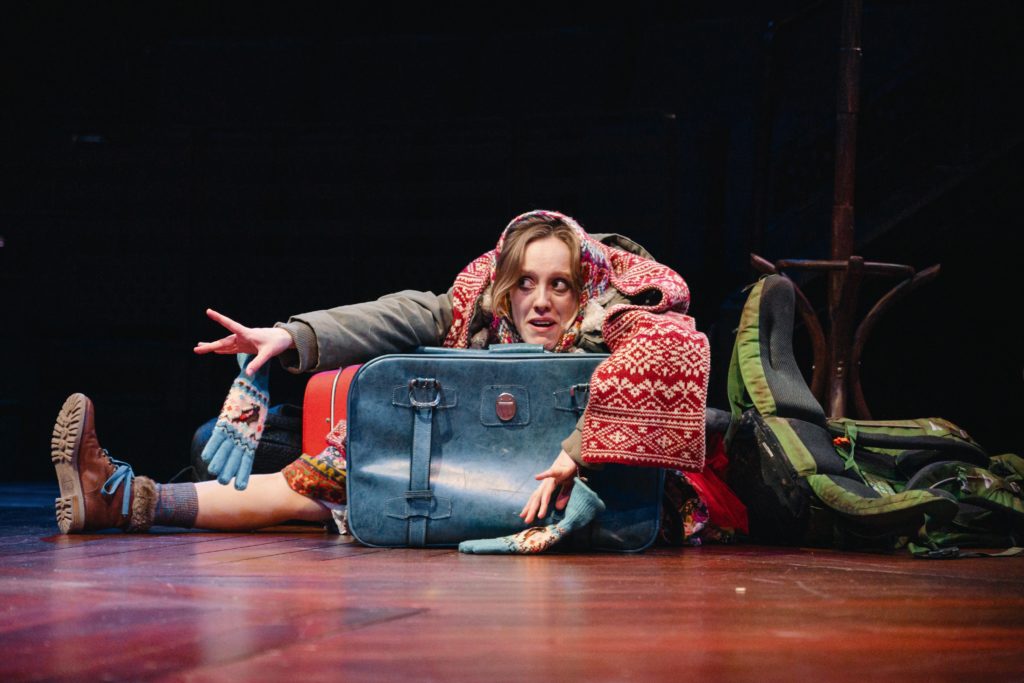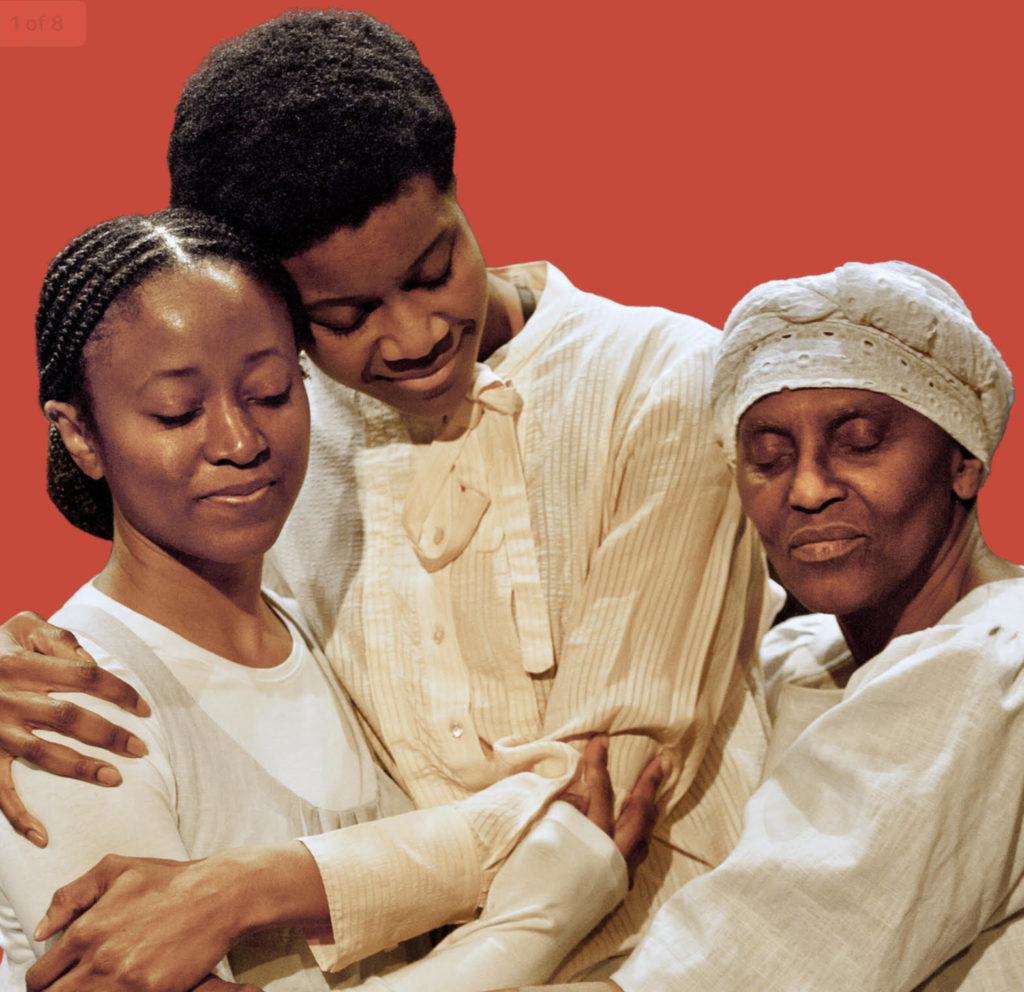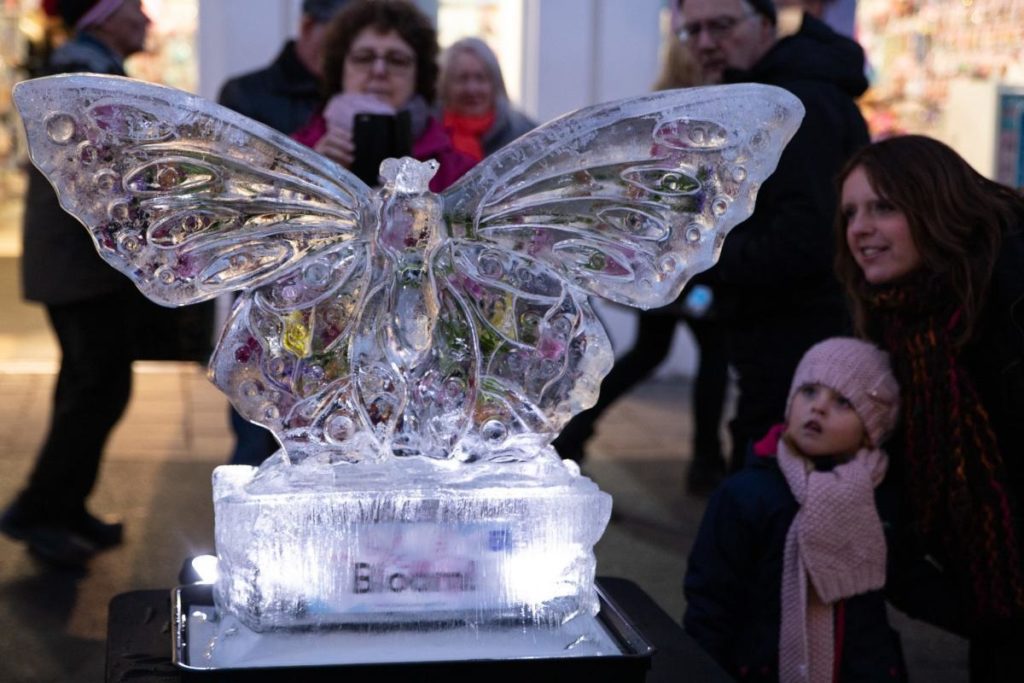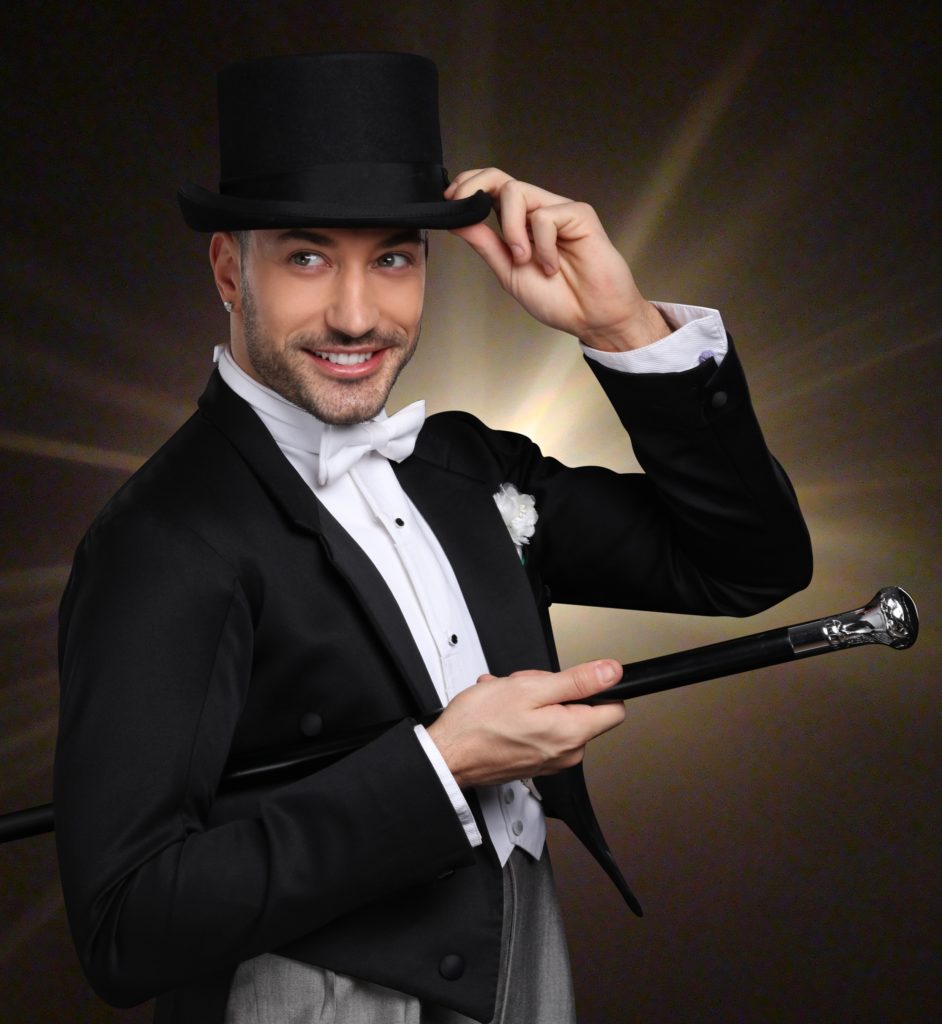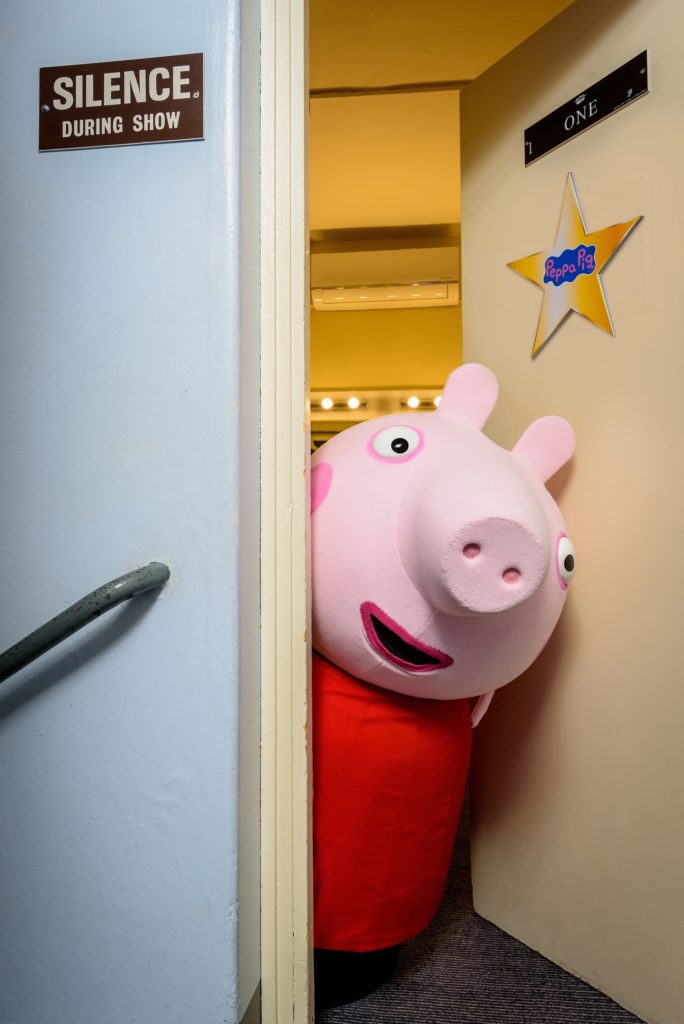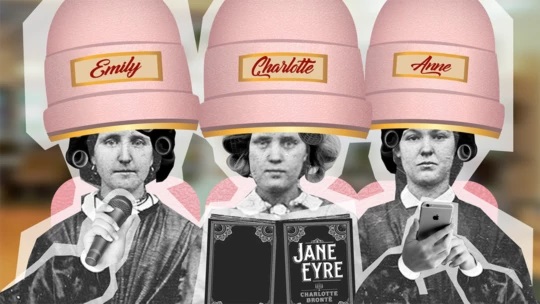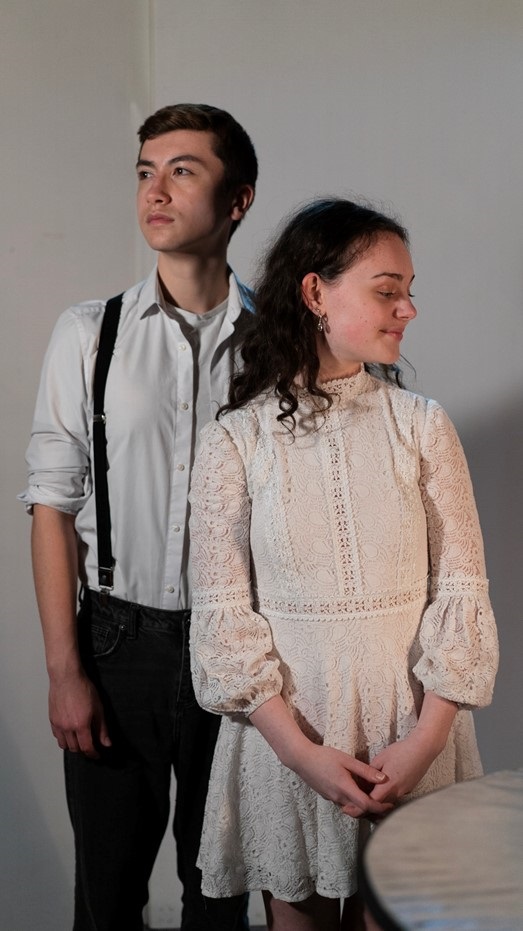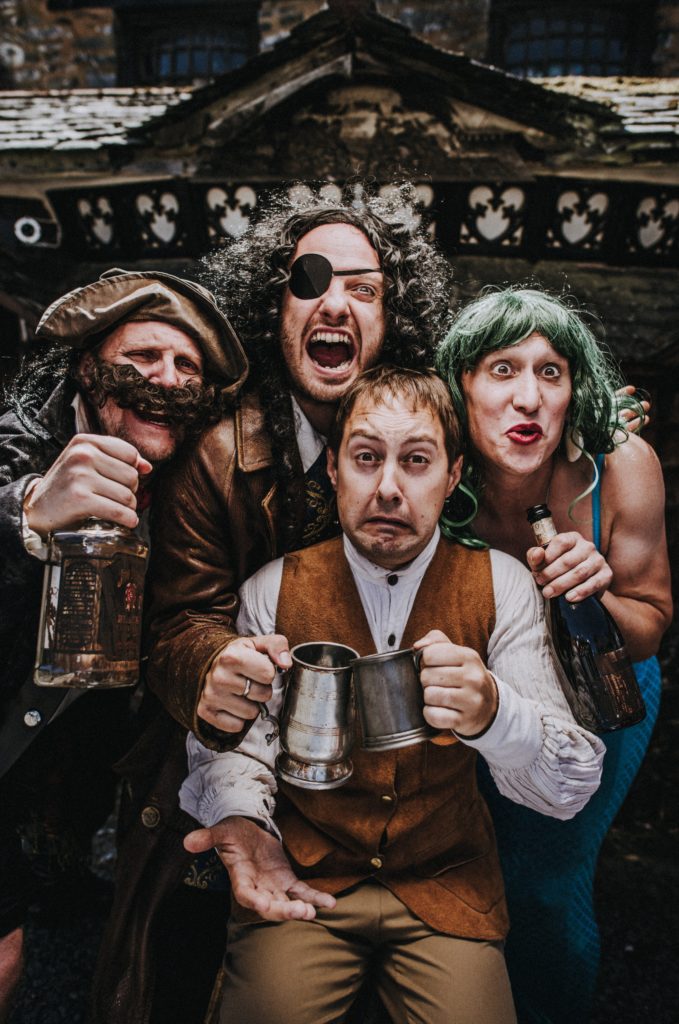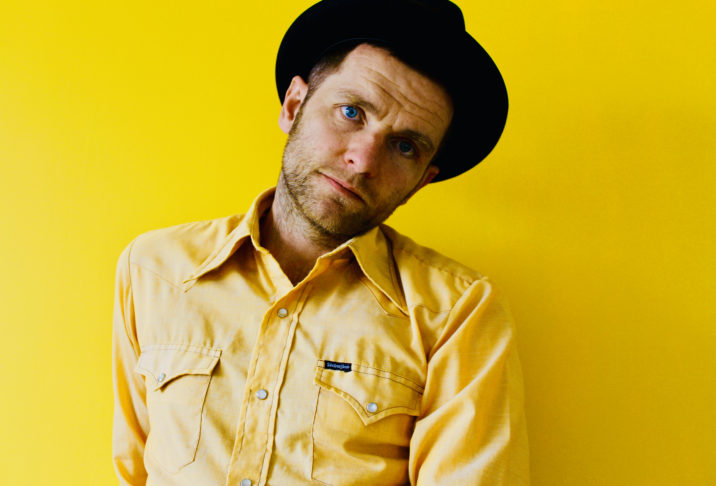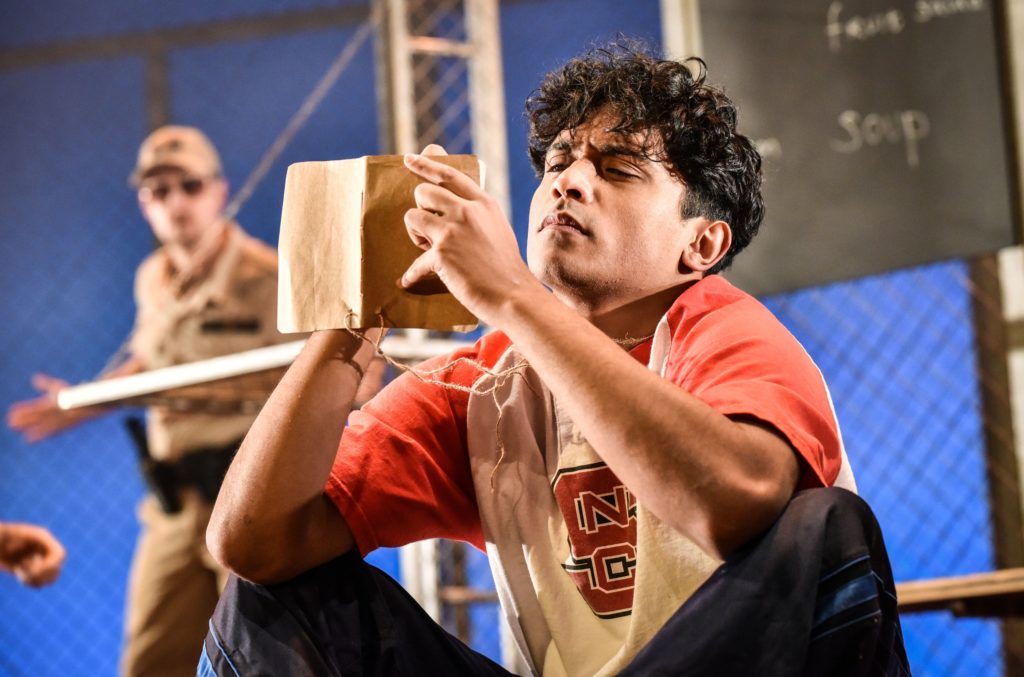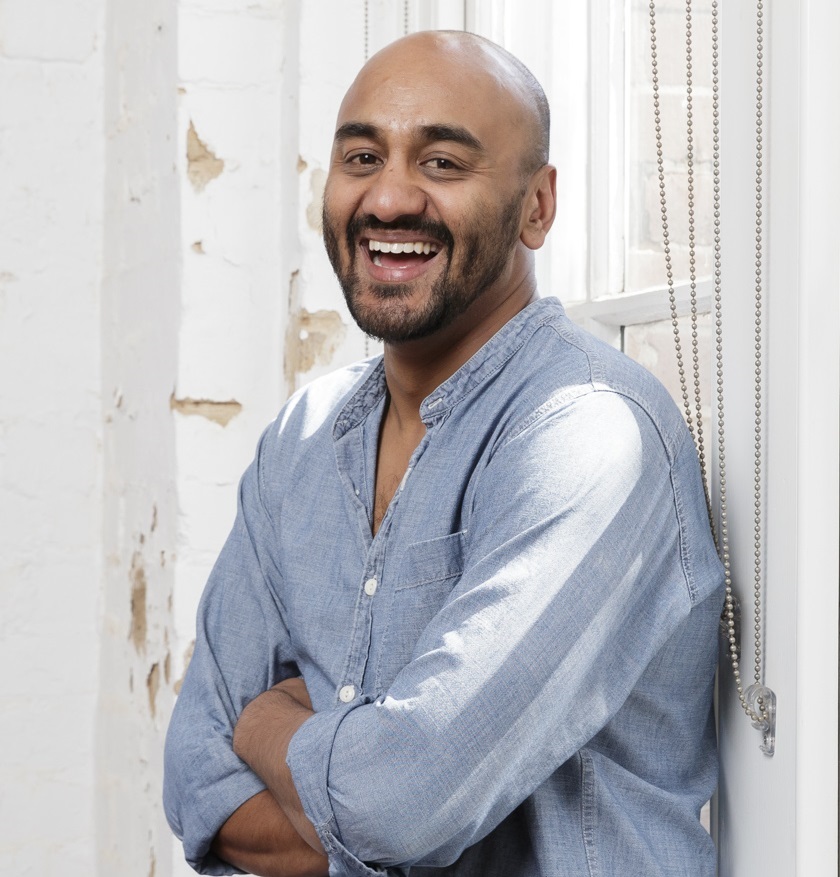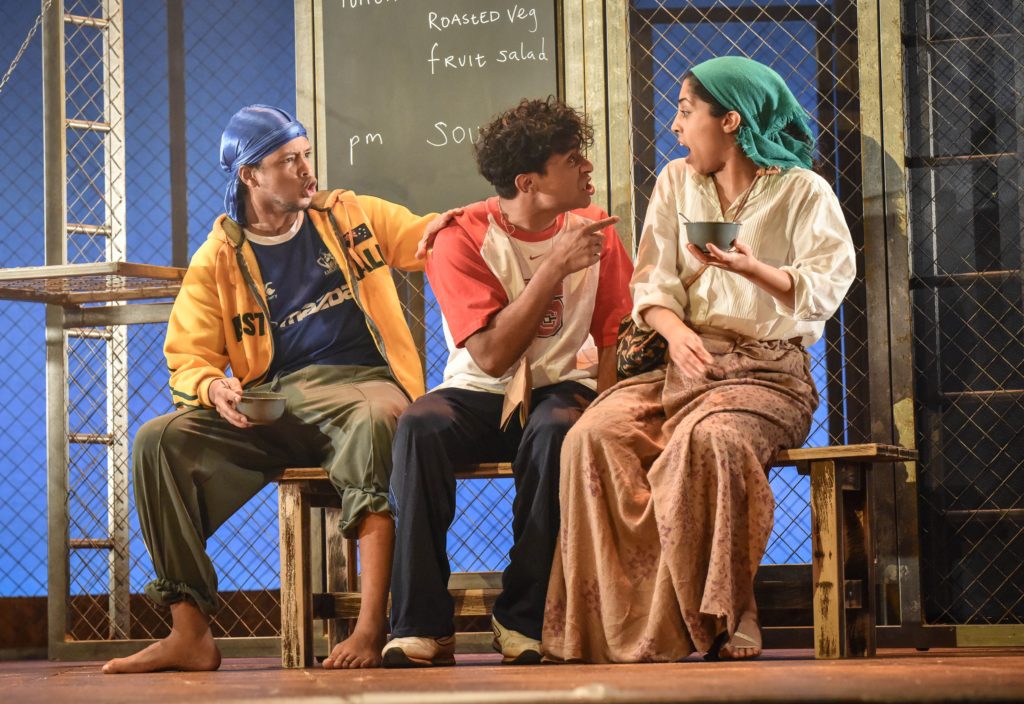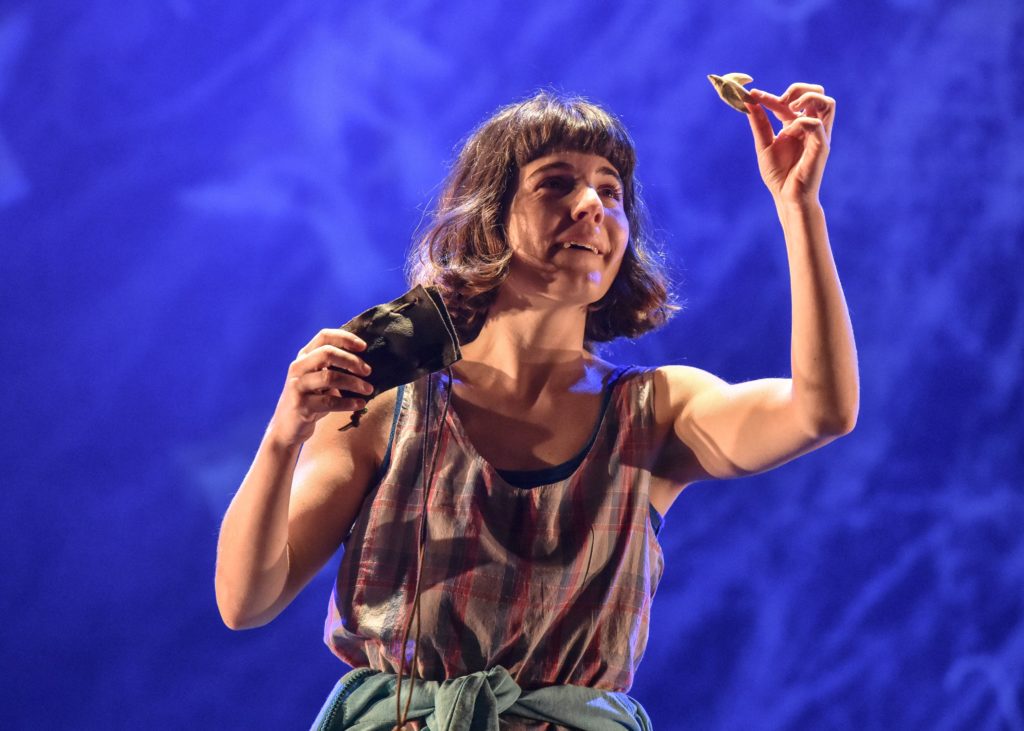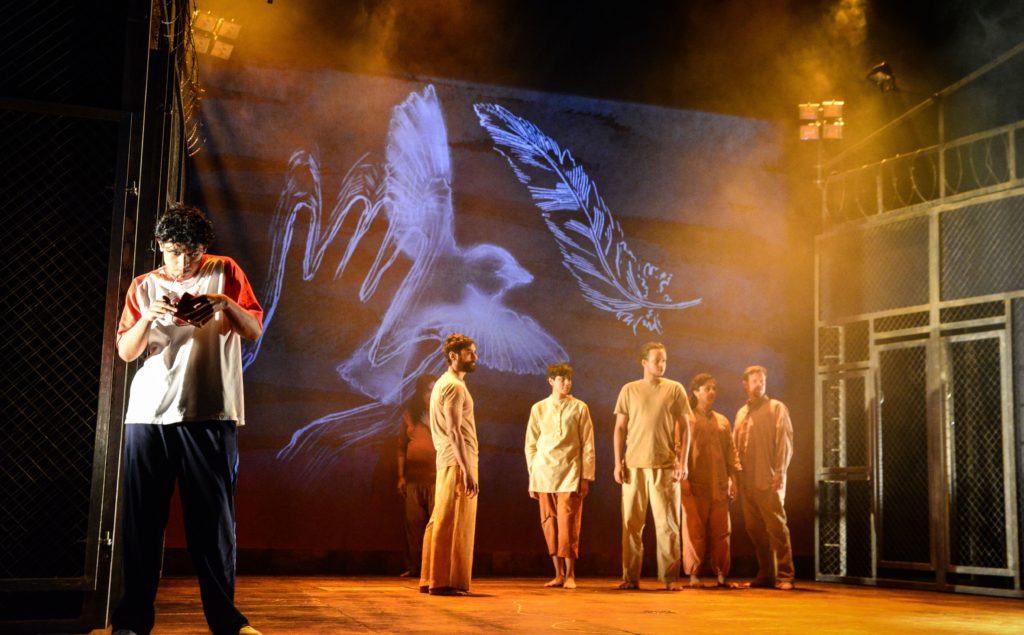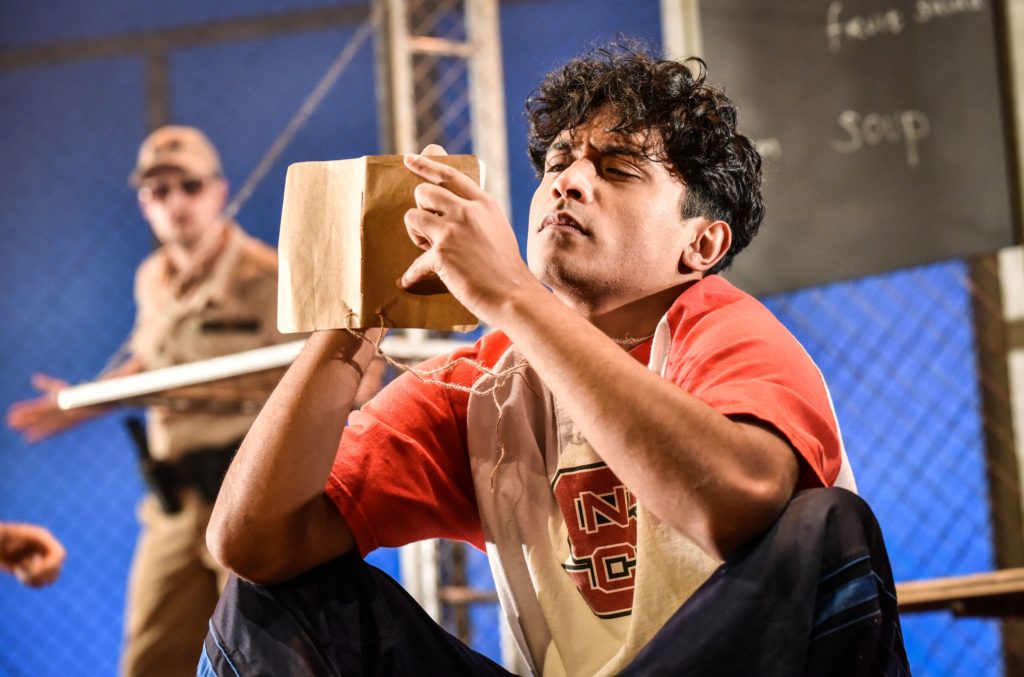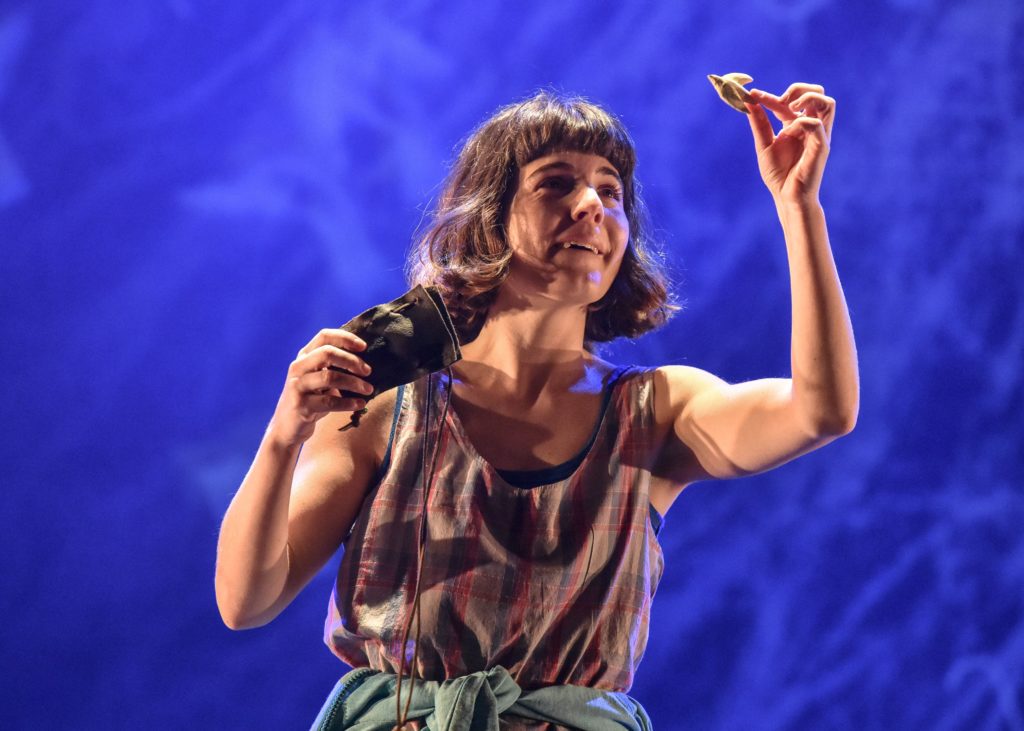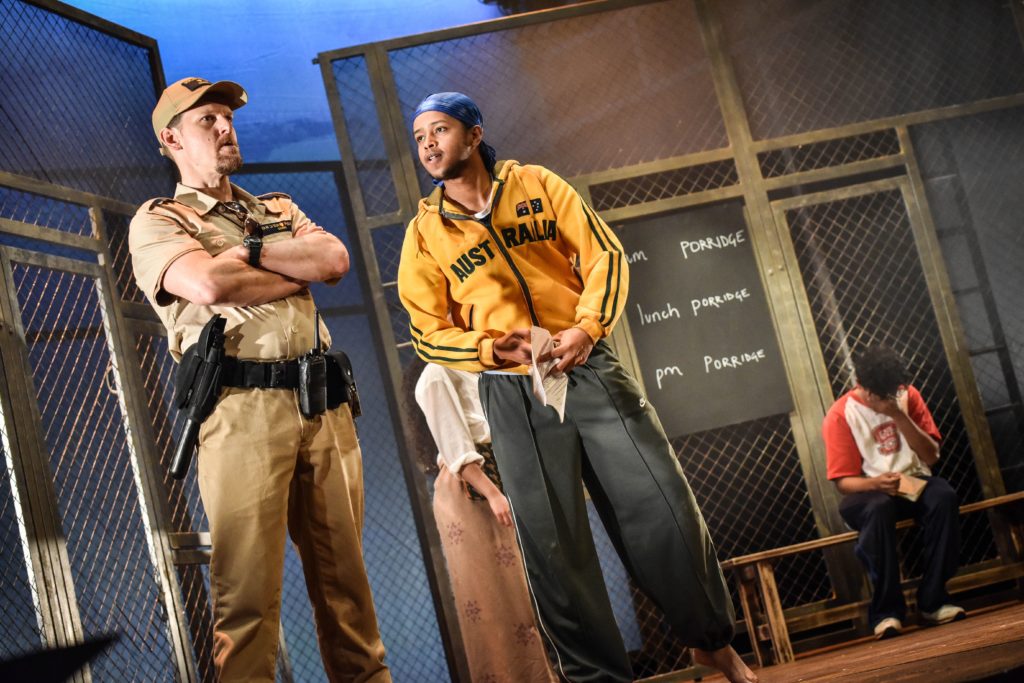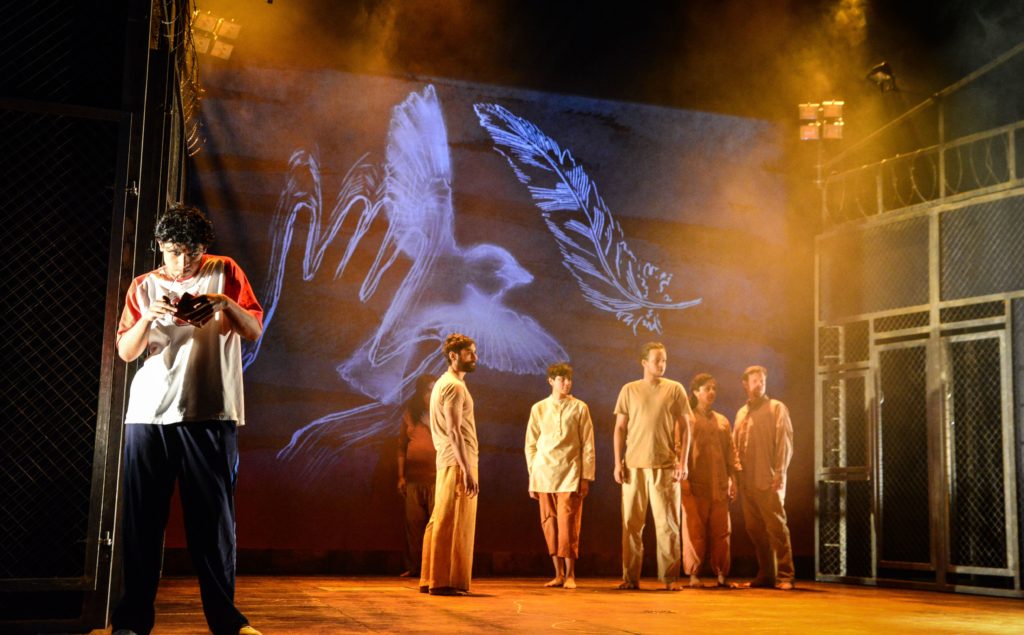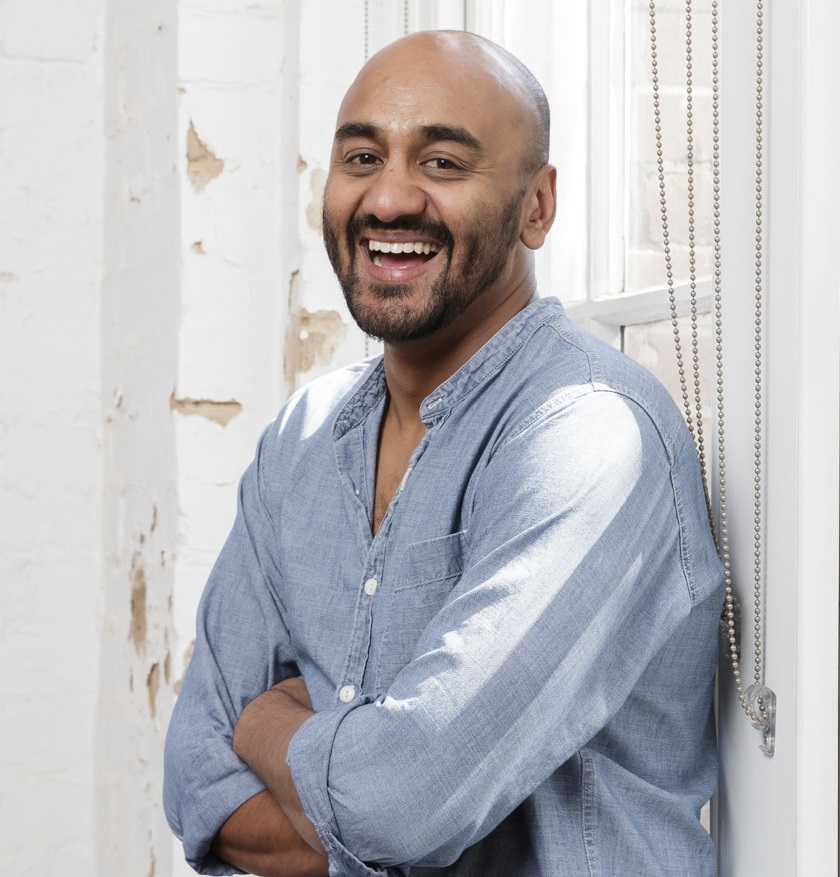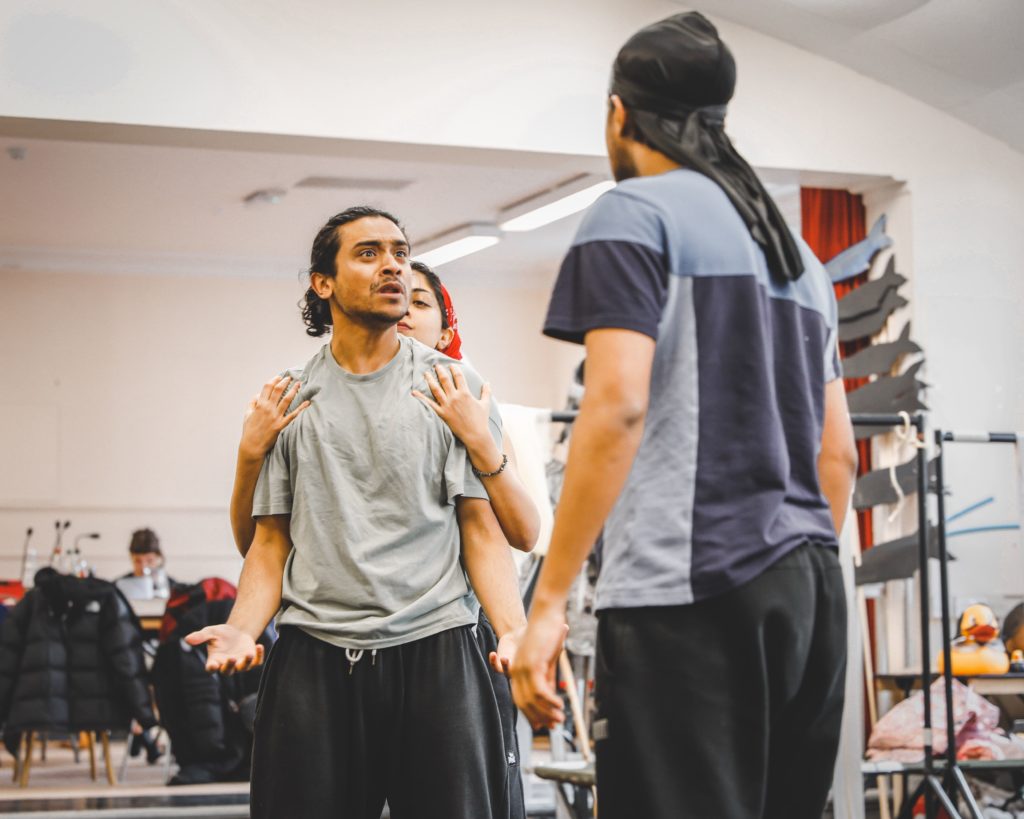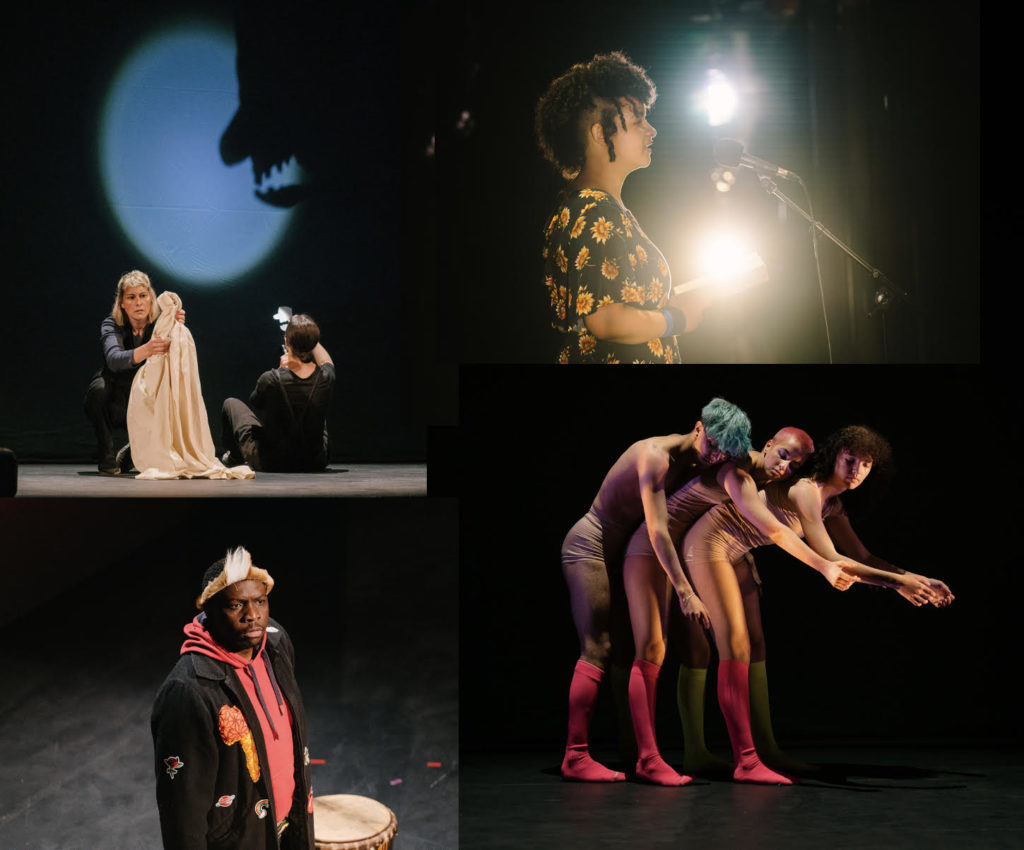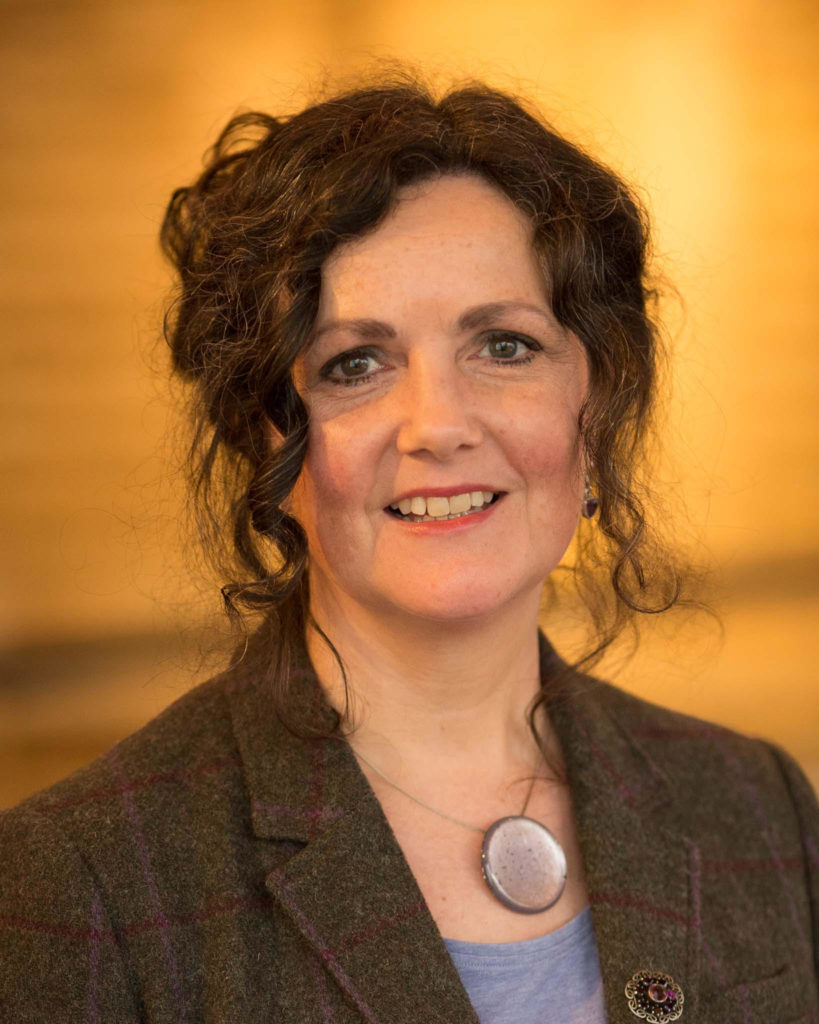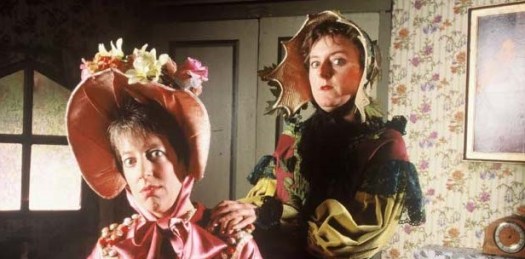
YORK actress Maggie Fox, one half of the long-running satirical comedy duo LipService Theatre, has died after a “catastrophic accident”.
In a statement on the company’s website, co-founder Sue Ryding says: “It is with great sadness that I have to announce the death of Maggie Fox, my comedy partner of 40 years and co-artistic director of LipService.
“Maggie passed away yesterday with her family around her. Consequently the Spring Tour of Chateau Ghoul has been cancelled. As you can imagine I am completely heartbroken.”
Maggie and Sue met when studying drama at Bristol University in the 1970s. “We were in a very serious production of Ibsen’s The Lady For The Sea but for some reason the audience was on the floor laughing,” recalls Sue.
“A tragedy for Ibsen – he was good at those – but the launch of an epic comedy partnership. Our theatre company LipService was officially launched in 1985 and we have written 22 original comedies, touring all over the world, managing to have children in between!
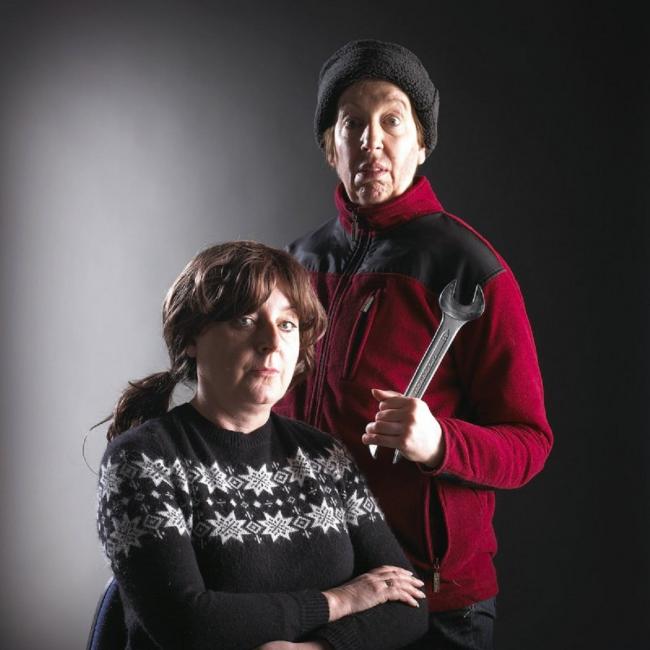
“It’s notoriously difficult to present new work in theatre and we are really proud that we managed to do so and to build an audience for it.”
LipService had been touring their latest two-hander, the haunted house thriller Chateau Ghoul, written, produced and performed by Maggie and Sue with a multi-media combination of on-stage live humour and digital projections.
Sue did give one performance with an understudy, but following Maggie’s death, the tour has been discontinued. “Maggie is irreplaceable and so, reluctantly, Sue Ryding and the rest of the company have decided we must cancel the remaining dates of the upcoming tour,” read LipService’s first announcement released to such venues Pocklington Arts Centre, where regular visitors Maggie and Sue had been booked to perform on March 26.
“We appreciate that this will come as a great shock to our wonderful and loyal followers. We would like to thank them for their understanding at this difficult time and for their valued and much cherished support over the years.
Sue’s LipService website statement continues: “We are still all in a state of shock as this was very sudden following an accident. We had planned a new digital version of Chateau Ghoul, which we had already filmed, which will be shared with you later in the year in memory of Maggie, plus some live events using the huge amount of digital footage we thankfully have archived. Details to be published when have a plan.
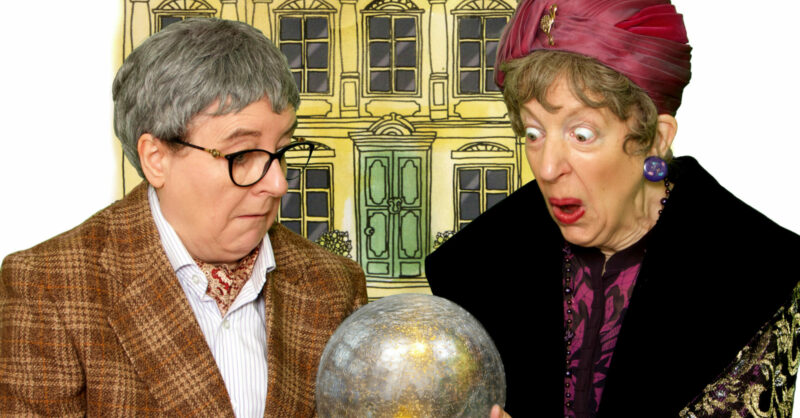
“Thank you for supporting us over all these years; we are so lucky to have such a loyal audience. We do hope you will join us to celebrate Maggie’s comedy genius later in the year.”
Janet Farmer, director of Pocklington Arts Centre, paid tribute to Maggie. “We have welcomed Maggie and Sue as LipService Theatre for 15-plus years; they have always been hugely popular with many sell-out performances of their wonderful spoof shows based on literary classics.
“I, along with my colleagues, am shocked and devastated to hear the tragic news of Maggie’s death. It is obviously a huge loss to Sue and to Maggie’s family but also to the touring theatre circuit.
“Maggie and Sue were a unique duo presenting their laugh-out-loud shows. They even continued with on-line versions of their shows during the pandemic. We are very sad not to be presenting their Chateau Ghoul this Saturday.”
Maggie, the very tall one from Yorkshire, and Sue, the rather shorter one from the other side of the Pennines, toured nationally and internationally to the United States, Germany, Eastern Europe and Pakistan.
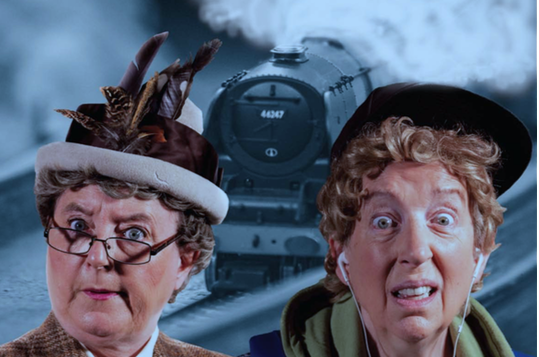
An inseparable, instinctive, inventive, mischievous, less-is-more, only-us-against-the-odds double act, they presented such savvy, gently anarchic shows as their Bronte Sisters send-up Withering Looks; Strangers On A Train Set; Inspector Norse; Knit One Murder One; The Picture Of Doreen Gray; Mr Darcy Loses The Plot and Desperate To Be Doris (the musical comedy one they did with a 50-piece community choir in York).
Not forgetting Jane Bond, their James Bond satire in Live And Let’s Dye; Very Little Women; Horror For Wimps; Move Over Moriarty, Women On The Verger; King Arthur & The Knights Of The Occasional Table; B-Road Movie!, Tony & Twizzle, The Glory Years, and Margaret III Parts Two and Three, all subjected to their microscope of mirth.
York Theatre Royal was one of multiple collaborators, along with Oldham Coliseum; The Lowry, Salford; The Brindley, Runcorn; The New Vic, Newcastle-under-Lyme; Greenwich Theatre, London; Watford Palace and Barclays Stage Partner
Described as the “Laurel & Hardy of literary deconstruction” by the Guardian, “Britain’s favourite literary lunatics” by the Independent and “an unstoppable force for comic inventiveness” by Time Out magazine, Maggie and Sue won the Critics’ Award for Comedy for both Withering Looks and Knot One Murder One at the Edinburgh Fringe; the Manchester Theatre Awards Stage Door Award for Excellence in 2013 and the Manchester Evening News Award for Withering Looks.
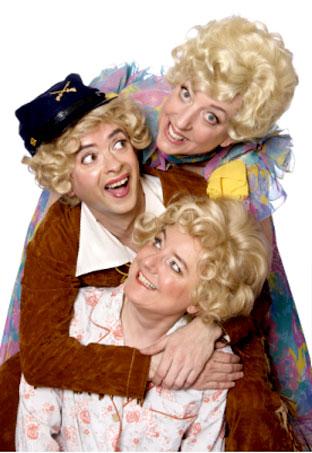
To complement their mainstream theatre , Maggie and Sue worked with heritage organisations on site-specific events, such as the Bronte Parsonage Museum, in Haworth; Elizabeth Gaskell’s House; the National Trust at Quarry Bank, Wilmslow, Cheshire; Manchester Histories Festival; European City of Science and Stockport Council.
LipService hosted series on BBC Radio 2 and Radio 4, made television appearances and were commissioned by the Bronte Parsonage to film Withering Looks, The Movie!, shot on location at the Brontes’ parsonage and on the wild and windswept moors with Arts Council England funding.
Maggie also appeared in four roles in Coronation Street (Ruth Audsley, Nurse, Judge Travers, Charmian Gray), between 1990 and 2010; six episodes of The Forsyte Saga, as Bilson, in 2002-2003; seven episodes of Soul Music as Ms Butts; Bob The Builder, as the voice of The Librarian and two episodes of How Do You Want Me?, as another Librarian.
In addition, she played Mrs Parke in the 2012 TV movie The Making Of A Lady and popped up in one episode each of Reckless (Woman With Dog), Shameless (Registrar), Accused (Defence Barrister) and South Riding (Matron).
Interviewed by The Press, York, on LipService’s 30th anniversary in February 2015, when presenting their walk on the Wilde side, The Picture Of Doreen Gray at Harrogate Theatre, Maggie said: “Thirty years! I know, it’s ridiculous really. You just think, ‘could you not think of anything else to do?’.” Thankfully, the answer was always No, and so LipService have delighted so many with their “general silliness”, as Maggie called it.
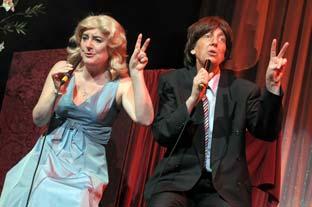
“We were trying to work out the other day how many hours we must have spent on the road, on a train, in a rehearsal room or on stage,” said Maggie, as she reflected on a partnership that had begun in the Bristol University drama department.
“We hadn’t really come across each other until our third year when we both cast in Ibsen’s The Lady From The Sea. At my height, I’m a dead ringer for Vanessa Redgrave, who’d just done the play at the Royal Exchange in Manchester, where she came on dripping in seaweed. So the image I had was of this queen of drama draped in a hell of a lot of green stuff.
“Anyway, Sue was playing my daughter in the university production, and we were just finding it very funny in rehearsal. The more it went on, the funnier we were finding it, but the others weren’t finding it funny and they weren’t finding it funny that we were finding it funny.
“We were doing that ‘looking into the distance’ acting for Ibsen, draped in seaweed, and it was so liberating to have found someone else who found it funny too, especially when no-one else did.”
Maggie and Sue then did the sound effects for another show, a radio play, to distractingly humorous effect as it turned out.
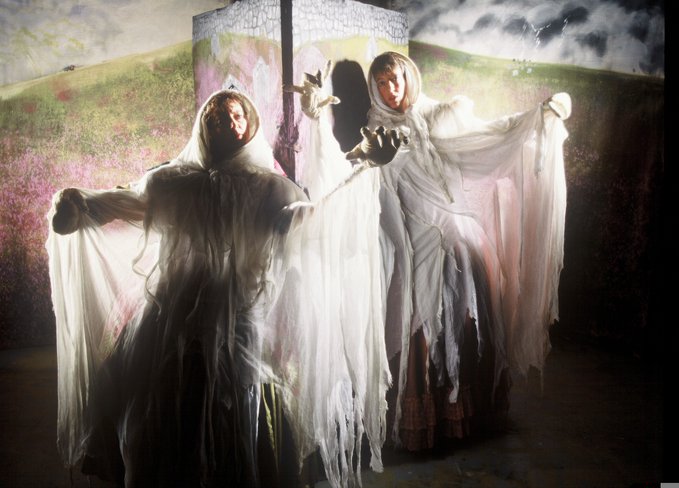
“We found the audience was watching us rather than the show. The director wasn’t happy,” said Maggie. “All I can remember is doing the noises for the clattering of teacups in the tea room and drowning out everyone else.”
Maggie had been born into a theatrical family: her father was on the board of York Theatre Royal; her uncle was a mainstay of the York Settlement Community Players.
“I knew I wanted to act; that was what I was going to do, so Sue and I got together and tried to do cabaret, going up to the Edinburgh Fringe, but no women were doing comedy, until Victoria Wood and Julie Walters became the trailblazers, but still the perception was that men were funnier than women,” said Maggie.
Not for long would she and Sue settle for doing “our flopsy bunny act between two aggressive comedians”. Lip Service would change all that, and how.
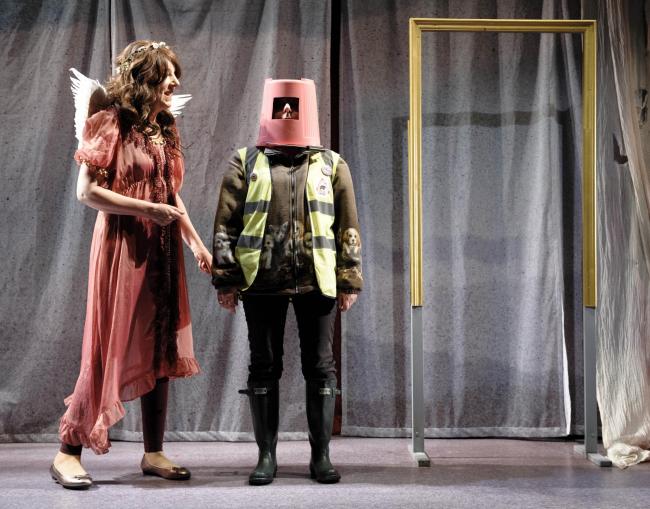
From cabaret roots, with a natural bent for impromptu interaction with the audience, the free flow of improvisation and the desire to “do the impossible”, Maggie and Sue also established the improv company Comedy Express in the 1990s, taking it to the pubs and clubs of Manchester, where Steve Coogan and Caroline Aherne would come along.
“You can play a lot of the same games in improvised comedy but they work and the shows are different every time, and that’s what I want with Lip Service shows,” Maggie said.
“I want them to be different every night or to have elements of surprise because it’s a different audience each night. We like living on the edge.”
Thank you, Maggie. You brought us so much merry mayhem in slickly organised yet deliriously chaotic comedy; now you have been taken away by tragedy, theatre’s other face. God bless you and a fond farewell.
By Charles Hutchinson

